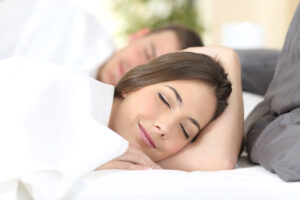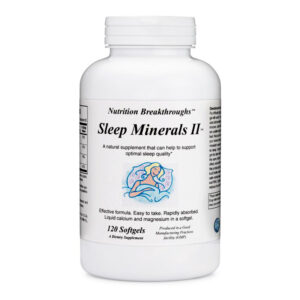 A study from the Journal “Sleep” has found that its beneficial to have a cooler body temperature for best sleep.
A study from the Journal “Sleep” has found that its beneficial to have a cooler body temperature for best sleep.
Making a special effort to cool down the body before bedtime may particularly help those with insomnia and sleeplessness to fall asleep easier and sleep more deeply.
Doctors at the Cornell Medical Center in White Plains, New York found 44 people to participate in their study. There were 21 men and 23 women between the ages of 19 and 82.
Using body temperature testing methods, the scientists discovered that the participant’s body temperatures naturally dropped most significantly in the two hours before sleep started. Because of this, they concluded that taking a hot bath 90 minutes before bed is the best time to create a more ideal temperature.
In other words, a person’s body temperature for best sleep can be changed by taking a warm bath and then when they get out of it, a steep drop in temperature will occur that more closely approximates the ideal, cooler temperature for a more sound sleep.
More recently, the study mentioned above from the Journal “Sleep” was included in an analysis of 13 different research studies published in a report in “Sleep Medicine Reviews”. In this new report, the authors found that taking warm showers and baths 90 minutes before bed can cause an increase in blood circulation that moves body heat from the internal areas of the body to the extremities, such as the palms and soles of the feet, thereby cooling the body down.
The bathing supports the natural rhythms and temperatures of the body. Bodies naturally have a cooler body temperature in the late afternoon and evening, and then as the night’s sleep ends, the body gradually becomes warmer.
Another tip would be to keep the bedroom comfortably cool, by using fans or an air conditioner as needed, to assist with falling asleep better and sleeping more deeply.
This health news is provided by Nutrition Breakthroughs, maker of the effective natural insomnia remedy Sleep Minerals II. Sleep Minerals II contains highly absorbable forms of the best minerals for sleep and relaxation, such as calcium and magnesium, along with vitamin D and zinc. The ingredients are delivered in a softgel form with healthy carrier oils, making them more easily assimilated than capsules or tablets and providing a deeper, longer-lasting sleep.
Valerie H. of Santa Clarita, California says: “I had such severe menopause insomnia it took me hours to fall asleep even though I was extremely tired. My legs also had crawling and tingling feelings at night. I got the Sleep Minerals and after a few days, it started to work really well. I fall asleep now within 20 minutes and no more restless legs.”
Wendy R. of Honolulu, Hawaii says: “My friends know that I’ve had chronic insomnia for a very long time. Surprisingly, I received the Sleep Minerals II and took it and I actually slept! This thing really works. In the past, if I ever got a good nights sleep I’d say “I slept like a baby”, but that’s the wrong analogy. Those little guys get up every two hours. I am actually beginning to sleep like an adult — a much-rested adult.”
For more information, visit the Sleep Minerals II page.




